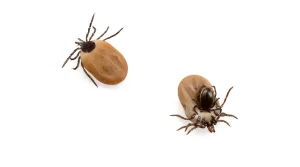Bats in the house might not be the first thing that comes to mind if you’ve never had to deal with them. Bats making a Halloween-like home invasion is an issue for particular California homeowners.
The presence of bats in your attic can lead to severe problems, whether you find them cute or frightening. Damage to public health is caused by the garbage they leave behind and the risk of being bitten.
Do you think you have bats in your house? Keep reading.
Why do bats keep showing up at your house, anyway?
When bats choose to make their homes indoors, they typically seek out secluded, dark areas that are also convenient for foraging at night. Some members of this group have access to unused spaces such as basements, attics, and wall cavities.
According to the National Wildlife Federation, hibernating bats may survive in temperatures as low as -40 degrees Fahrenheit and as high as +120 degrees Fahrenheit. Bats can conceal their roosts expertly, so it may be years before a homeowner discovers a colony living there. These could be evidence that bats have taken up residence in your home:
- All the waste has been concentrated in one attic area or entrance area.
- The insulation in the attic has been ruined by rain.
- Urine marks the walls of the attic.
- The presence of human waste is almost certainly the source of the strong ammonia odor in your attic.
- Discreet noises, like scraping or squeaking, can be heard.
- Observing actual bats, whether they are alive or dead.
If you arrive home to find a bat in your living room or your attic, it’s probably there by accident. Bats can escape through the attic’s vents, but if they find their way inside your room, they may be unable to escape.
Is it appropriate for bats to live in my area?
According to Rutgers University’s New Jersey Agricultural Experiment Station, the general public has a skewed understanding of bats. Most people are surprised to learn that bats have normal vision. However, they now have eyes modified to let them see clearly in low light and avoid danger. Many nectar-eating bats have an advantage in their nighttime flower-hunting because they can detect UV light.
All around the world, bats, including those in California, are bug eaters. Bats are essentially nocturnal animals because they eat a wide variety of insects, including mosquitoes, moths, caddisflies, midges, and more.
Bats can correctly gauge their prey’s size and speed via echolocation. There may be bats in your area, and if you listen carefully, you might be able to hear their small clicks as they soar through the night.
In general, bats are a very routine-oriented species. If they succeed, they plan to return to the same spot annually. You can expect the same bats to return if you don’t restrict their access. Each year, a mother bat will birth to one or two infants, which she will then raise in the safety of your home’s rafters or chimney.
Getting bitten is a real possibility if you don’t contact a pest control or animal management company. Bats occasionally transmit rabies to humans through their saliva.
Is there any way to prevent bats from entering the attic?
The cost of bat removal is proportional to the square footage of your home and the extent of the exclusion work required. Installing bat netting in a residence with a single entry point is typically less expensive than installing the same net in a home with several entry points.
Where can I go to get expert assistance?
When bats find their way into homes or barns, even city animal control agencies may not be able to get them out. If you want to know how your community gets rid of bats, you can contact Animal Control.





